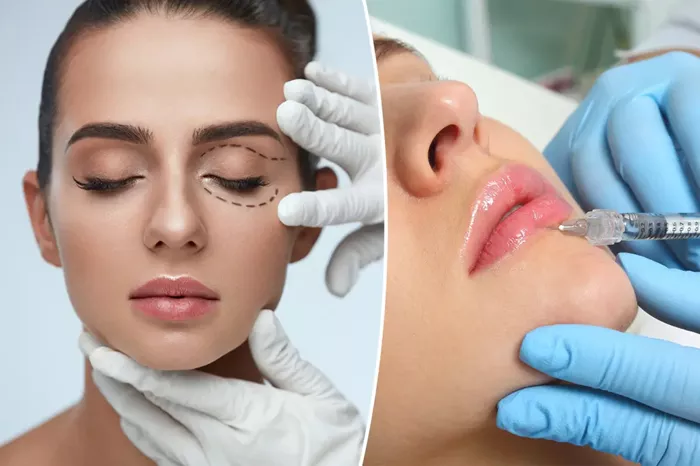Recent research reveals a concerning trend: 70% of young adult women and 60% of young adult men report dissatisfaction with their bodies. This troubling statistic coincides with a sharp increase in the number of cosmetic surgeries performed in Canada, where 35 million aesthetic procedures were carried out in 2023—up 40% from just four years earlier. Experts point to social media as a driving force behind this surge.
A growing body of research suggests that social media platforms like Instagram, Facebook, and Snapchat play a pivotal role in shaping unrealistic beauty ideals. Filters, influencer culture, and celebrity transformations often promote an idealized image of beauty, leading to negative social comparisons and, in some cases, the decision to pursue cosmetic surgery. A 2024 systematic review by Mironica et al., which analyzed 25 studies involving nearly 14,000 participants, concluded that social media significantly influences individuals’ choices to undergo aesthetic procedures. Likewise, Thawanyarat et al. (2023) noted a noticeable increase in online searches for cosmetic surgery after the rise of Instagram.
The Influence of Celebrities and Advertising
The celebrity-driven beauty trend has only intensified through social media, with stars like Kylie Jenner setting off waves of interest in cosmetic procedures. When Jenner shared her experience with lip injections, Google searches for dermal fillers spiked. But it’s not just celebrities—targeted cosmetic surgery ads on platforms like Instagram and TikTok are also playing a major role. Research by Thawanyarat et al. (2023) highlights how social media ads significantly influence decisions to undergo surgery. By using hashtags such as #plasticsurgery and #rhinoplasty, plastic surgeons have turned these platforms into lucrative marketing tools. However, these ads often downplay potential risks, focusing instead on idealized, edited results.
The Role of Social Appearance Anxiety and the Pandemic
Another critical factor fueling the surge in cosmetic procedures is social appearance anxiety—the fear of being judged based on looks. Social media exacerbates this anxiety by encouraging constant comparison, leaving many individuals feeling insecure about their appearance. The COVID-19 pandemic intensified these pressures, as remote work and video calls made people more self-conscious of their appearance on screen. According to a 2022 study by Padley, there was a noticeable uptick in cosmetic surgery interest, particularly among those seeking facial enhancements. As video conferencing continues to be the norm, the long-term effects of this increased self-scrutiny remain a growing concern.
The Risks and Ethical Implications
While cosmetic surgery can boost confidence for some, it also carries significant risks. Social media’s portrayal of “perfect” transformations often overlooks the potential for complications, leading to unrealistic expectations. These risks include infection, scarring, and anesthesia complications, as well as emotional risks such as long-term dissatisfaction. Experts caution that cosmetic surgery can become a slippery slope, as one procedure often leads to others in an attempt to achieve an ever-elusive ideal.
Ethical concerns also arise when young people, who may still be developing a sense of self-identity, seek cosmetic enhancements. Critics argue that this fosters a cycle of body dissatisfaction and excessive self-modification that only deepens over time.
Moving Forward: Raising Awareness and Promoting Body Positivity
To address these growing concerns, experts advocate for the implementation of body positivity initiatives and pre-surgery psychological assessments to screen for conditions such as body dysmorphic disorder. Policymakers are also urged to regulate cosmetic surgery advertisements to prevent the promotion of unattainable beauty standards, while investing in mental health programs to address underlying issues related to body image. Social media platforms themselves have a responsibility to collaborate with mental health experts to curb harmful beauty messaging and promote more diverse and body-positive content.
Ultimately, the power to shape our online experiences lies in our hands. By curating feeds that prioritize authenticity and self-acceptance, users can counteract the pressures imposed by social media. However, it’s important to recognize that algorithms often reinforce these harmful beauty ideals. The question remains: are cosmetic enhancements truly necessary, or are we being conditioned to believe they are? True self-worth stems from within, and embracing self-compassion may prove to be a far more fulfilling pursuit than chasing an impossible standard of perfection.
Related topic:
Weight Loss Drugs Spur Surge in Demand for Facial Plastic Surgery
Kelly Ripa on Botox and Beauty Trends
Dr. Kevin Sadati Introduces Groundbreaking Preservation Deep Plane Facelift


